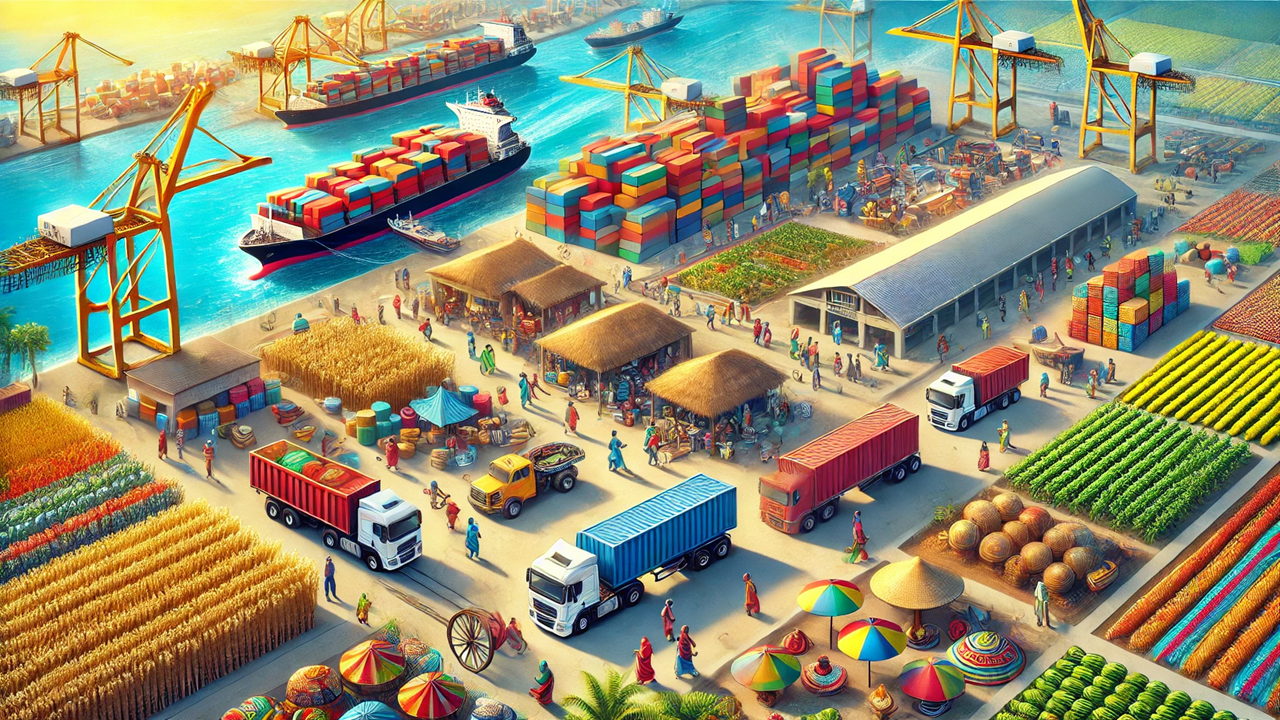Africa Set to Use Critical Minerals for Sustainable Development and Intra-Continental Trade Growth
The United Nations Conference on Trade and Development (UNCTAD) has identified these critical minerals as a key revenue generator for African governments.

- Country:
- South Africa
Africa, home to about 30% of the world’s mineral reserves, is poised to capitalize on its vast resources of critical minerals like cobalt, lithium, and nickel to drive economic growth and industrialization. These minerals are essential for the global green energy transition, and experts emphasize that Africa must fully exploit these assets to accelerate intra-continental trade and development.
At an Expert Group Meeting (EGM) hosted by the African Trade Policy Centre (ATPC) of the United Nations Economic Commission for Africa (ECA) in Addis Ababa on December 16–17, 2024, stakeholders discussed strategies for Africa to better leverage its mineral wealth. The meeting highlighted that while Africa has developed the right policies to manage and develop its mineral resources, it needs more decisive action to unlock their full potential. Without such action, the continent risks losing out to global investors eager to tap into Africa’s mineral resources.
Antonio Pedro, Deputy Executive Secretary of the ECA, emphasized that the time for Africa to act is now. "There is no reason why we should have a repeat of the scramble for Africa, especially at a time when greater political and economic integration has also taken place at the regional and continental levels," he said. Pedro referred to policies such as the African Mining Vision (AMV), the African Commodity Strategy, and the African Green Minerals Strategy, which are already in place across the continent to ensure that Africa benefits from its mineral resources.
Critical Minerals and the Global Green Energy Transition
The global demand for critical minerals, essential for clean energy technologies, is expected to skyrocket in the coming decades. According to research by the ECA, the transition from fossil fuels to renewable energy will require around 3 billion tons of minerals and metals by 2050. Africa’s mineral reserves play a pivotal role in this global shift, with the Democratic Republic of Congo alone supplying about 70% of the world’s cobalt, a key component in electric vehicle batteries.
The United Nations Conference on Trade and Development (UNCTAD) has identified these critical minerals as a key revenue generator for African governments. By adding value to these resources, Africa can boost its industrialization, promote green technologies like e-mobility, create jobs, and develop a competitive hub for green industrialization.
Africa holds significant reserves of essential minerals, including 55% of the world’s cobalt, 47.65% of manganese, 21.6% of natural graphite, and 5.6% of nickel, among others. However, current research indicates that African countries are only capturing about 40% of the potential revenue from their mineral resources, underscoring the need for enhanced exploitation and value addition.
Intra-African Trade and Regional Integration
The growing demand for critical minerals presents a unique opportunity for Africa to increase revenues from mineral exploitation and value addition. The EGM stressed the importance of developing regional mineral-based value chains to spur industrialization, which can be facilitated through Africa’s existing trade and integration programs, including the African Continental Free Trade Area (AfCFTA) and Regional Economic Communities (RECs).
The AfCFTA, a trade bloc covering 1.3 billion people with a combined GDP of over $3.4 trillion, is a powerful tool for boosting intra-African trade, which currently accounts for only 15% of the continent's total trade. Leveraging the AfCFTA’s market potential could help Africa retain more of the value generated from its critical minerals.
Actionable Recommendations for Africa’s Mineral Strategy
The EGM also explored Africa’s historical experiences with commodity dependence and how these can inform future policies. Experts recommended several actions, including conducting a baseline study to assess how African minerals are currently traded and utilized. The study would provide crucial insights into how Africa can avoid the pitfalls of past commodity booms and busts, ensuring that it maximizes the value from its mineral resources.
The meeting concluded with a call for further research to guide actionable policy recommendations that would help African nations build minerals-based regional and continental value chains, diversify their economies, and strengthen their position in global trade negotiations.
The Road Ahead: Harnessing Africa’s Resources for Future Prosperity
Africa’s critical minerals offer a path toward sustainable development, economic diversification, and industrialization. By prioritizing value addition, strengthening regional trade, and fully implementing policies such as the AfCFTA, the continent has the potential to become a global leader in the green energy transition while significantly improving the livelihoods of millions of Africans.
- READ MORE ON:
- Economic Commission for Africa










